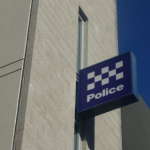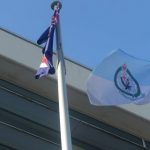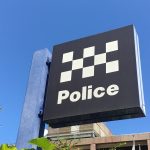There is No Independent Oversight of Police in NSW

Police have been accused of using excessive force during a raid on a Sydney nightclub last weekend. According to some reports, partygoers at Club 77 were searched, thrown out and reportedly tasered during a raid on Saturday night.
“One kid was apparently tasered in the back alley for not complying and multiple were searched in inappropriate places in front of people,” Matty Bicket, the venues promoter wrote on Facebook the following day. While police have denied these claims, there are additional reasons why the raid is concerning.
As Greens MP David Shoebridge points out, there is currently no independent body with sufficient resources to investigate reports of misconduct – or complaints about NSW police generally for that matter.
As the NSW Ombudsman and Police Integrity Commission wind down before they merge into the new Law Enforcement Conduct Commission, they no longer have the resources to investigate claims like Mr Bicket’s, or any other for that matter. In other words, no one is watching our watchmen.
Mr Shoebridge highlighted these concerns in a letter sent on Friday to Troy Grant, the NSW Minister for Police.
“I write to your office seeking a review of the circumstances in which police undertook a raid of Club 77 on William Street on Saturday, 27 May 2017. I am directing this correspondence to your office in the absence of there being an effective or workable police oversight body in NSW at the date of this correspondence.” Mr Shoebridge wrote.
“As you are aware both the Police Integrity Commission and the Ombudsman are transitioning away from any police oversight role and have minimal staffing levels that make them incapable of undertaking fresh investigations. The body that is to replace them, the Law Enforcement Conduct Commission, is yet to commence operation and as a result there is literally no independent oversight of the NSW Police.”

What Is The Law Enforcement Conduct Commission?
The introduction of the Law Enforcement Conduct Commission (LECC) was announced in November 2015, following recommendations made by former Shadow Attorney-General Andrew Tink as part of his Review of Police Oversight.
“To simplify and improve the police oversight system in New South Wales, a new single civilian police oversight commission… should be established to exercise the functions currently carried out by the Police Integrity Commission, the Police Division of the Office of the Ombudsman and the Inspector of the Crime Commission.” the review recommended.
According to the report, the benefits of this new model include: “better transparency and accountability; the more effective use of intelligence; and an improved external investigation capacity.”
Despite the announcement, it’s taken almost a year and a half for the new Commission to be set up.
Last November, the NSW Parliament passed the Law Enforcement Conduct Commission Bill (2016) bringing the body into existence. It then took until January for the new head of the Commission, Supreme Court judge Michael Adams, to be announced, following the withdrawal of the initial candidate, Victorian senior barrister Jack Rush, for family reasons.
Mr Adams had been a strong advocate for law reform, chairing the NSW Law Reform Commission from 1996-99. The respected barrister successfully defended medical student Izhar ul-Haque against terrorism charges after ASIO officers wrongfully imprisoned him in 2007.
Mr Adams’ withdrawal has added to concerns that the new Commission will make police even less accountable than they currently are.
On the day following the introduction of the legislation, acting NSW Ombudsman John McMillan wrote a letter to the PIC, the NSW Crime Commission and the Parliamentary Committee on the Ombudsman warning that the new Commission would “diminish rather than streamline” the functions performed by his agency. In the letter, McMillan warned that a number of key recommendations from the Tink Review had been ignored by the legislation.
“A comparison of the current arrangements for police oversight and those that will apply under the LECC bill reveals some important departures from key recommendations made by Mr Tink.” McMillan wrote.
In particular, Mr McMillan noted that police will still be responsible for handling investigations into critical incidents and incidents involving the death or serious injury of either a member of the police force or the public in the course of a police operation, leaving a serious gap when it comes to independent oversight.
McMillan also expressed concern about the fact that the LECC’s employee budget will be 10 per cent less than that of the Police Integrity Commission and the police division of the Ombudsman’s office, depriving it of the resources needed to investigate serious incidents.
The Need for Independent Oversight
We have reported on several cases where police have acted beyond the scope of their powers.
In October last year, we reported on the case of Rickey Carton, who was forcibly removed from his car and beaten by two Queanbeyan police after producing a plastic dinosaur when asked if he had any weapons in the car.
Following the incident, Mr Carton and his passenger were arrested and charged with assaulting police and resisting arrest. During the trial, the two arresting testified to the assaults, before a third officer at the scene, Ms Litchfield, gave evidence to the contrary, testifying that the men had not assaulted her colleagues but was in fact assaulted by them.
Ms Litchfield also testified that it was police culture to “lie” in order to “protect your mates”, rather than to “tell the truth.”
There are many other reported incidents where police have lied in court to protect their colleagues.
“We have an inherent conflict of interest when police investigate police. It means nobody can have faith in the independence of the investigation,” Mr Shoebridge told Sydney Criminal Lawyers® in August. he added that this conflict needs “to be removed as a matter of priority especially when somebody has died in the course of a police operation.”
The problems with the current regimes extend beyond just a few bad apples in the police force – something that became abundantly clear in the aftermath of the Lindt Cafe siege.
Because the siege was declared a critical incident, police officers themselves were tasked with conducting an internal investigation – one that happened to involve former Deputy Police Commissioner Catherine Burne and former Police Commissioner Andrew Scipione.
It is hard to imagine a more career-limiting moment than trotting up to the Commissioner’s office and asking to see their phone, text messages, and emails – key evidence in determining what directions were given over the course of the operation.
Perhaps this is why several details were missed in the course of that internal police investigation, only to emerge later during the coronial inquest.
“A properly independent body responsible for dealing with complaints about police is a critically important aspect of ensuring that police are properly accountable.” Stephen Blanks, president of the NSW Council for Civil Liberties, told The Guardian.
“Interactions with the police for many members of the public are often difficult and in difficult circumstances. There does need to be a proper complaints process and a proper investigatory body which can deal with complaints about the police.”
For members of the public like Bicket, Carton, and the victims of the Lindt Siege show, he couldn’t be more accurate.







